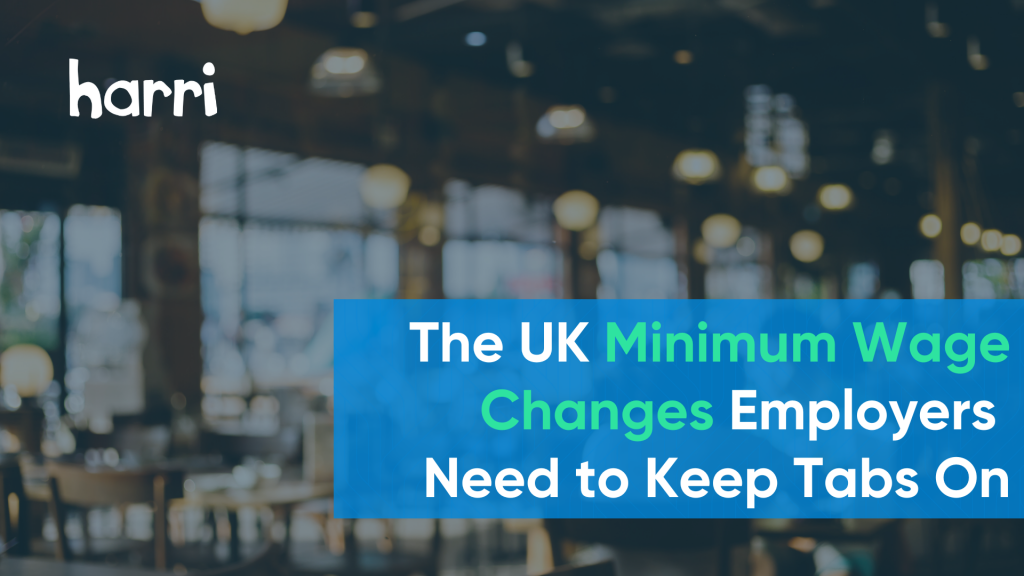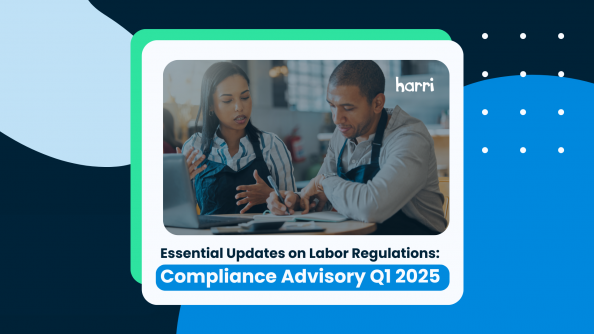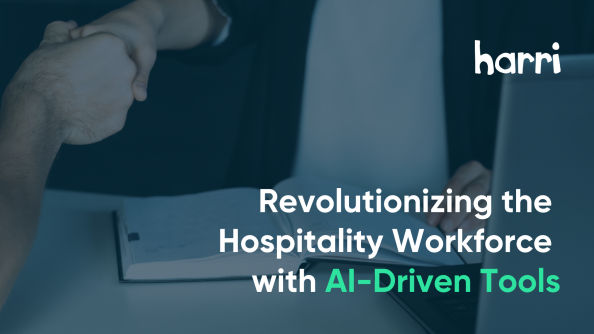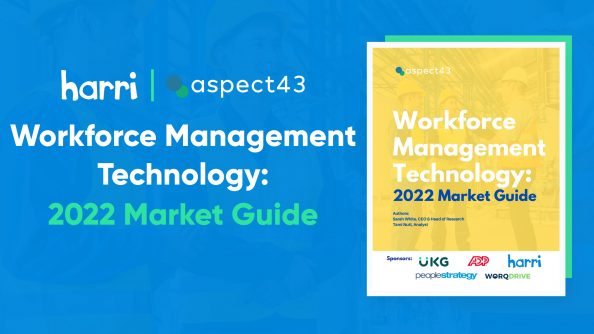Your Guide: UK National Minimum Wage Increases 2024

- By Harri Insider Team | January 24, 2024
The National Minimum Wage (NMW) and National Living Wage (NLW) in the UK are set for another increase on 1st April 2024. These updates are intended to ensure a livable wage for all workers, particularly vital in hospitality where challenges like low-pay roles and high turnover are prevalent.
It’s crucial to understand how these wage adjustments will affect your workforce and employment practices. This blog offers a comprehensive overview of the 2024 requirements for workers of different age groups, along with actionable advice to ensure compliance.
Save this link as your simplified guide to proceed with confidence around:
- The age-specific UK minimum wages employers need to know about
- The updated 2024 wage increments
- Compliance measures that can save organisations from hefty fines
The UK Minimum Wages Employers Need to Keep Tabs On
The 2024 minimum wage increases will affect a broad spectrum of workers, with their age and location determining the specific updated rates. Let’s first explore the various wage categories applicable to UK employment.
UK National Minimum Wage (NMW)
The National Minimum Wage is a legal benchmark, ensuring all UK workers are paid what is considered a fair wage. Employers must pay at least this rate, though they can opt to pay more.
The NMW varies based on an employee’s age. Apprentices are eligible for a specific Apprentice Rate if they’re under 19 or in their first year of apprenticeship. Those at school leaving age (16) receive the NMW until they qualify for the National Living Wage at age 21.
UK National Living Wage (NLW)
From 1 April 2024, the UK National Living Wage will extend to workers aged 21 and over, not just those over 23. This change marks a significant shift in the wage structure, reflecting the evolving economic landscape.
The UK government’s 2024 wage increase, informed by the Low Pay Commission’s 2023 evidence, reflects a focus on providing a livable wage amidst changing economic conditions and labour market dynamics. This adjustment aims to ensure fair compensation for workers while considering the broader economic impacts.
Recommended UK Living Wages
Outside of the national living wage, there are a few other recommended rates in place that are higher in some areas and can give employers an edge to attract talent within a competitive hospitality sector.
The Living Wage Foundation recommends the following rates to give workers a wage that accurately reflects the cost of living:
The London Living Wage: Currently at £13.15, this hourly rate is calculated independently to reflect London’s high cost of living and give workers enough compensation to afford living essentials.
The Real Living Wage: Currently at £12.00, this hourly rate is similar to the London Living Wage but applies to the rest of the UK as an optional guide for employers who look to support their workers further to minimum wage requirements. Over 14,000 UK businesses voluntarily pay the Real Living Wage.

Updated 2024 UK National Minimum Wages
The UK National Minimum Wage increase will go into effect on 1st April 2024. UK hospitality operators will benefit from strong awareness of all wage changes to avoid fines with fair and compliant payment practices.
NMW rate | Annual increase (£) | Annual increase (percent) | |
National Living Wage (21+) | £11.44 | 1.02 | 9.8 |
18-20 Year Old Rate | £8.60 | 1.11 | 14.8 |
16-17 Year Old Rate | £6.40 | 1.12 | 21.2 |
Apprentice Rate | £6.40 | 1.12 | 21.2 |
Accommodation Offset | £9.99 | 0.89 | 9.8 |
Streamlining Operations and Reducing Costs with Harri
With rising minimum wages, operators face increased operational costs. Harri’s next-generation platform addresses this by streamlining technology and scheduling processes, ultimately reducing turnover. Harri’s solution offers:
- Efficient Scheduling: Optimise labour costs with intelligent scheduling, ensuring you have the right staff at the right time, reducing overstaffing or understaffing issues.
- Reduced Turnover: By enhancing employee engagement and satisfaction, Harri helps lower turnover rates, cutting down the costs associated with hiring and training new staff.
The High Cost of Non-Compliance
Over 200 employers in 2023 were named by the UK government for failing to pay their lowest-paid employees the minimum wage. Most of these businesses have repaid what they owe to staff but they also incurred financial penalties, regardless if their failure to pay minimum wage was intentional or not.
There’s no doubt that penalties add an unexpected financial strain, but they also appear in the news to tarnish the reputation that hospitality employers rely on so heavily. Organisations that rely on manual processes for identifying team birthdays and age records can easily find themselves in a less-than-ideal position when such changes occur.
HM Revenue and Customs (HMRC) enforces minimum wage payment by taking firm action against any employers that they find to be in violation. These actions can include:
- Criminal legal proceedings
- Fines up to £20,000 for each employee or worker affected
- Inclusion on a Business, Energy and Industrial Strategy (BEIS) public list
How to Remain Compliant
1. Review your payroll processes
Review your current pay rates with the chart above to ensure you pay all employees at least the National Minimum Wage. Quickly identify any employees currently paid below the new rate so you can notify them and adjust their pay accordingly. Accurate records of all employees, birthdays, wages, and hours worked are critical to your business’s compliance, especially when wages and rate requirements shift.
2. Adjust both hourly and salaried employees
The 2024 minimum wage requirements apply to both hourly workers and salaried employees. As a hospitality organisation, you likely employ a mix of both pay structures. Still, any worker who receives an annual salary must also meet the National Minimum Wage requirements.
You can look at a salaried employee’s weekly or monthly pay totals and divide them by the hours they work to ensure they receive fair pay. To be prepared for new hires, you can also carve out some time to carefully review your existing employment contracts and make any necessary changes to remain compliant.
3. Provide the right benefits
Compliance will go beyond wages. It’s also important to ensure all employees receive competitive and fair benefits that support their health and well-being. Benefits can include holiday pay, sick pay, and breaks, based on each worker’s contract.
Benefit distribution and confirmation is another area where organisation and record-keeping in your talent management system of record will help you stay compliant.
4. Overcommunicate with your teams
As you’re learning about wage increases, your workers are too. They will likely have some questions you can get ahead of. The best approach is to be proactive with your communication by letting employees know about the wage changes that will impact their pay.
Focus on open communication and precise details about when exactly each worker will receive an updated paycheck. Your designated employee communication application or channel is a great place to share updates so no one misses out on key logistics.

Ensuring Compliance: Harri's Workforce Management Solution
Non-compliance with wage laws can lead to significant financial penalties and tarnish your brand’s reputation. Harri’s platform ensures compliance through:
- Automatic Pay Rate Updates: Harri’s system automatically adjusts pay rates based on age, position, or location, ensuring your workforce is always paid in line with the latest legal requirements.
- Effective Employee Data Management: Keep accurate records of employee ages, wages, and hours worked, essential for compliance, especially when wage rates and requirements change.
Navigate Minimum Wage Changes With Harri
Adapting to wage changes can be challenging, but Harri’s workforce management solution simplifies this process. Employers using Harri’s organised and compliant payroll solution can automatically change workers’ pay rates in bulk based on age, position, or location as requirements shift.
Stay compliant and maintain a satisfied workforce. Learn more about how Harri can assist you in navigating these changes and enhancing your employee experience.
Chat with our team today to learn how our unparalleled employee experiences drive business performance globally for over 20,000 restaurant and hotel locations.




















